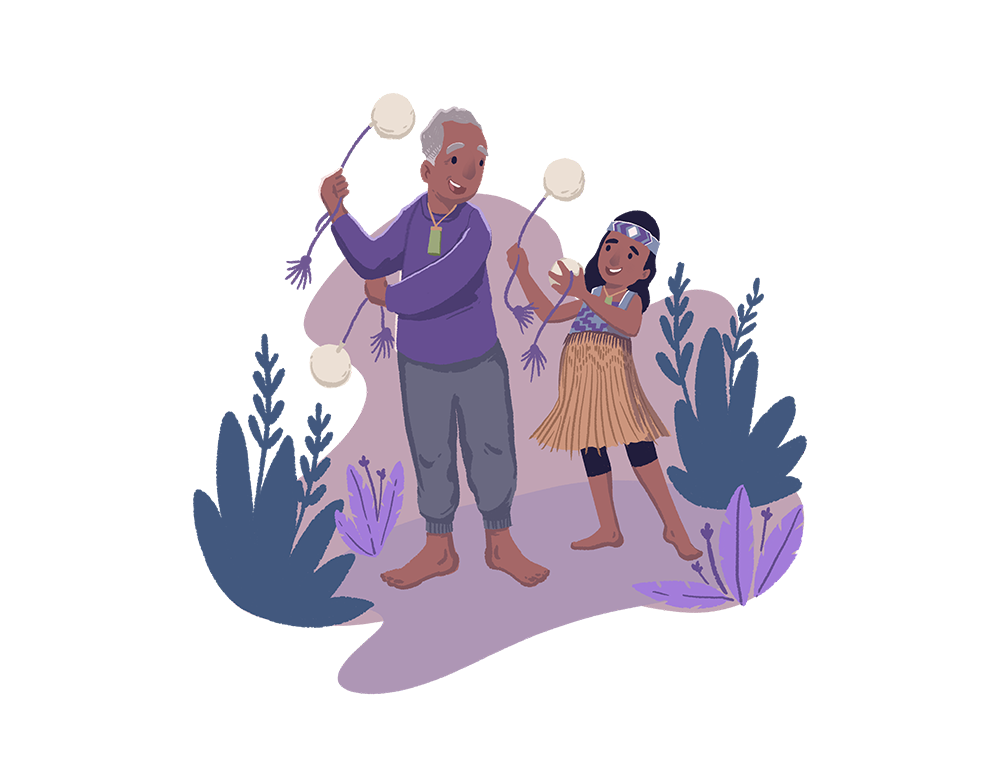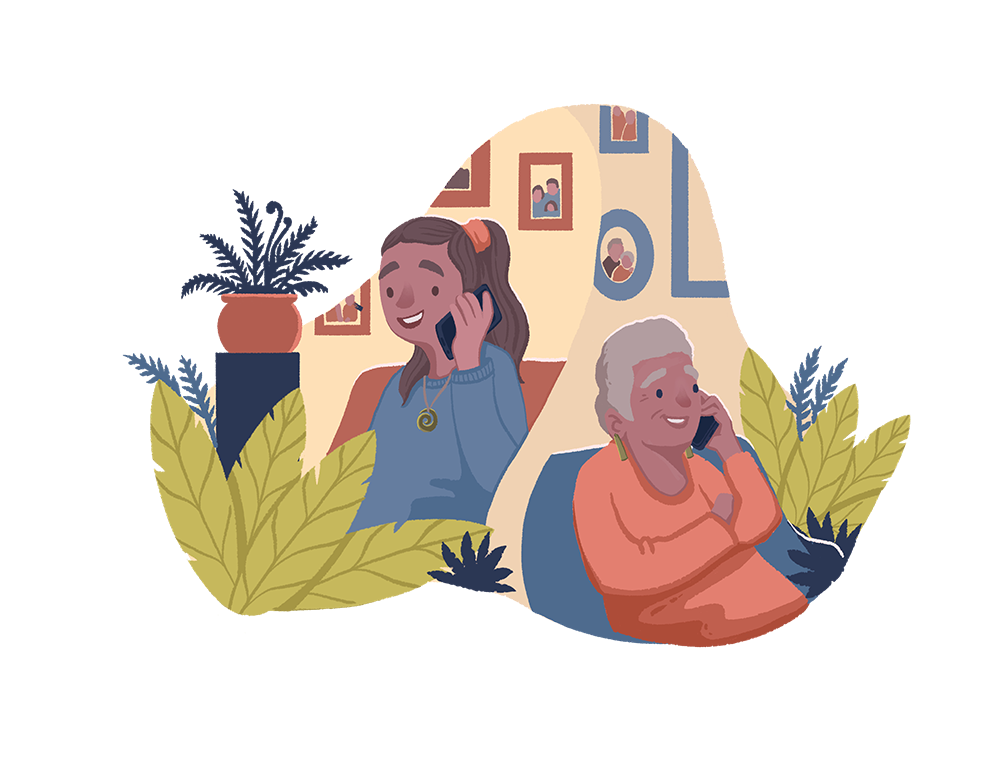
Take pū whānau are the values that guide how we develop and maintain relationships. They include values like manaaki, tika, pono, aroha, and tautoko. These values have been passed down through generations in our whakapapa. They can be seen within pūrākau in the actions of ngā atua Māori. They can be seen displayed within the home between a mother and her child, or between tangata whenua and manuhiri on a marae.

As social beings we draw strength from being in healthy relationships with loved ones (family, friends, workmates, pets). Wellbeing for tamariki and whānau means identifying and practicing positive cultural approaches to living well, like our tupuna did. The take pū that come from living and practicing within a Māori worldview (like tikanga Māori) strengthen whānau wellbeing.
Waiho i te toipoto, kaua i te toiroa
Let us keep close together, not wide apart.
This whakatauki speaks about collectiveness, and about finding and affirming common views, opinions, and positions. Take pū whānau are the values and actions that guide and affirm this connection.





